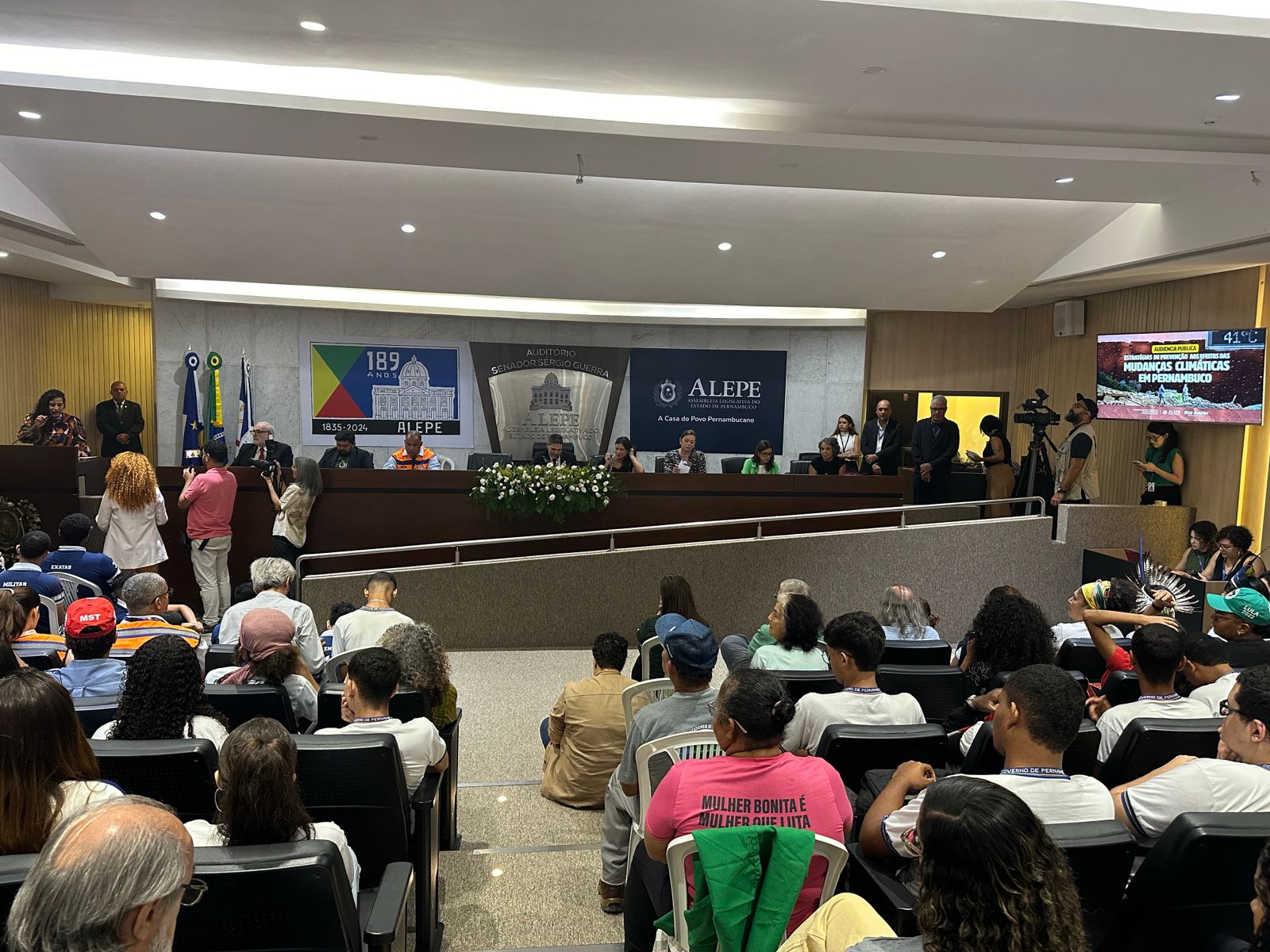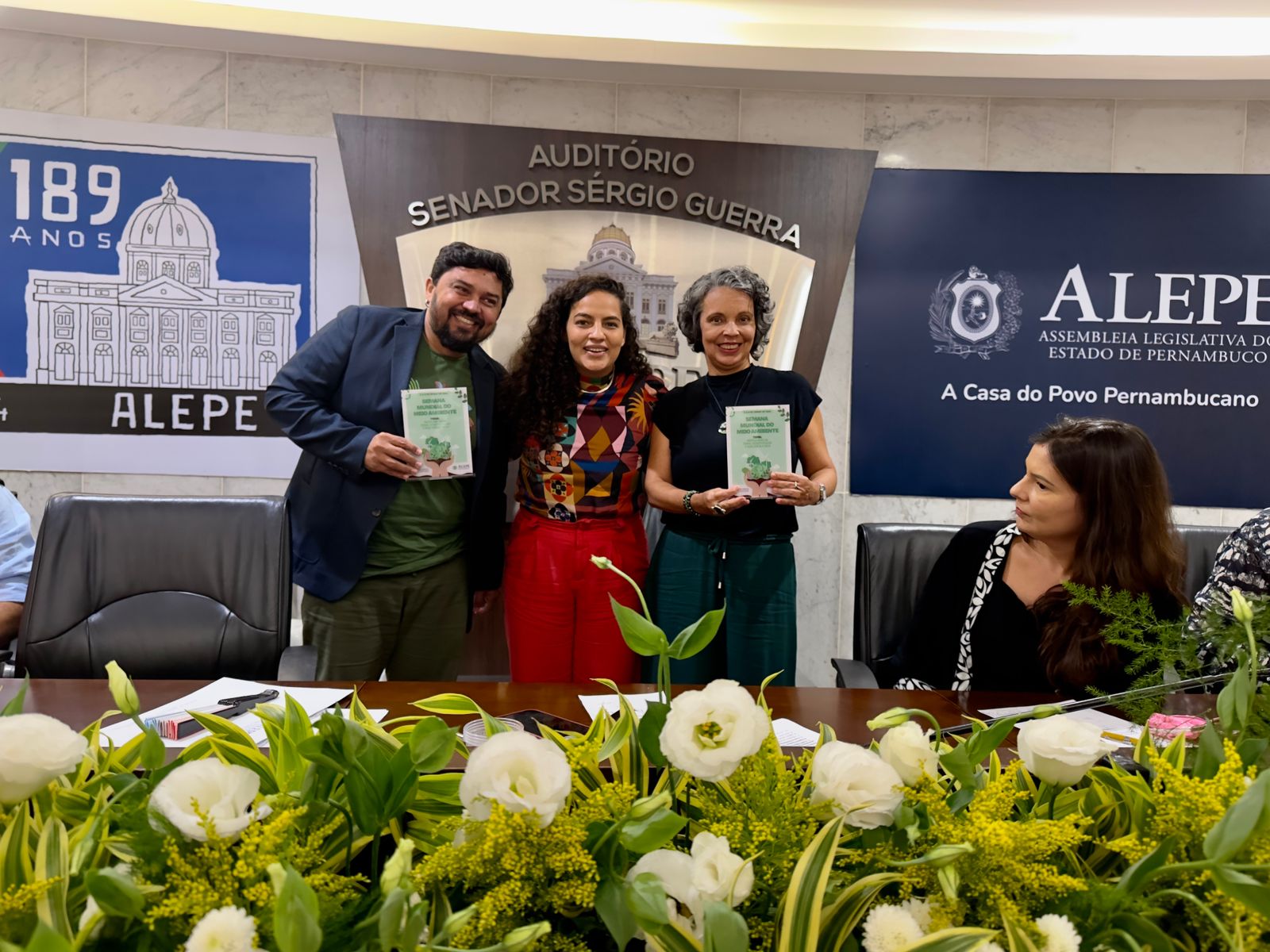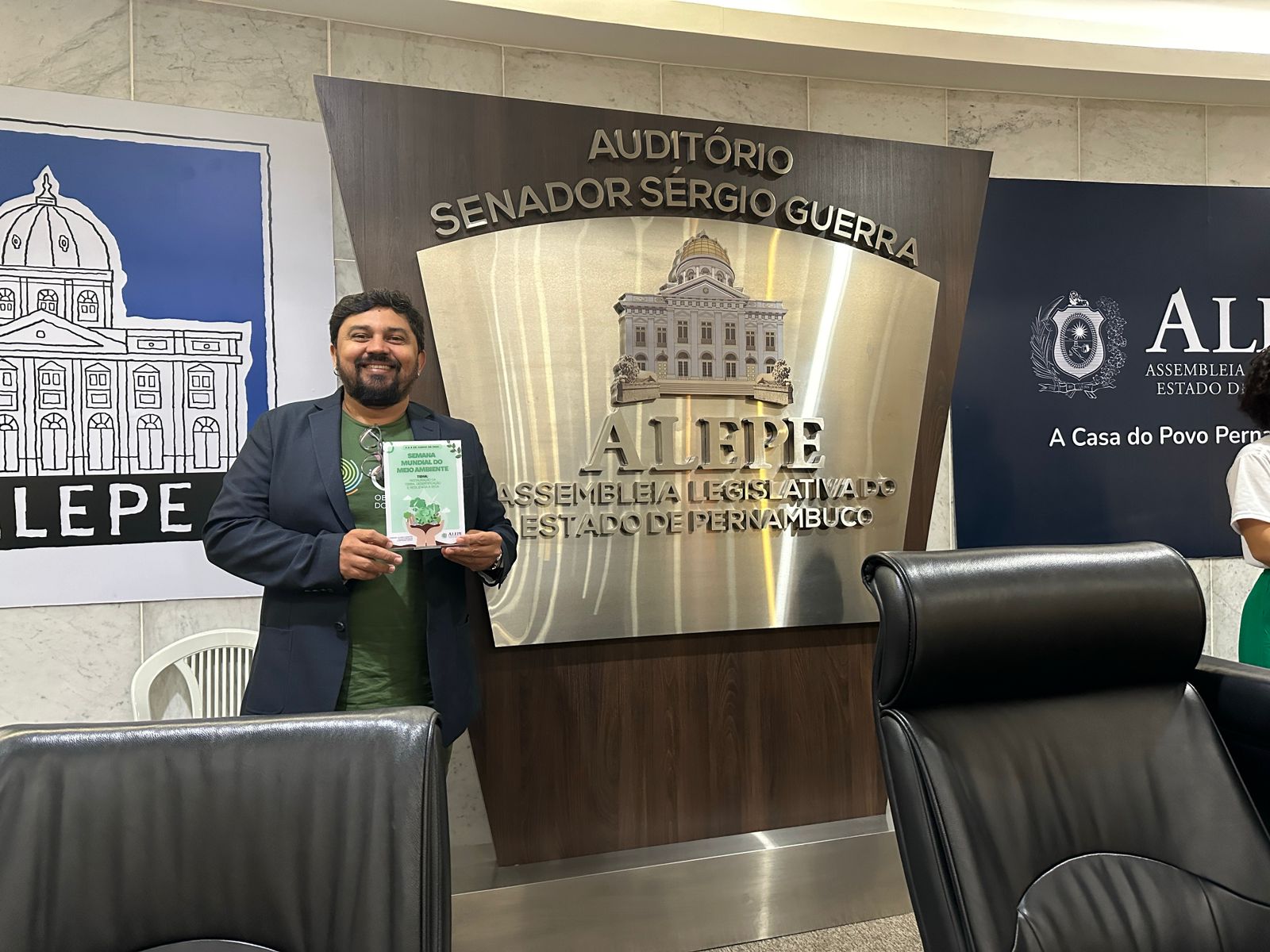Sabiá Center attends public hearing on Strategies to Prevent the Effects of Climate Change in Pernambuco
Hearing is part of the Pernambuco Legislative Assembly’s World Environment Week program
Bárbara Bittencourt
Sabiá Center Communication Intern
On Tuesday (04/06), Carlos Magno Morais, social mobilization coordinator at Centro Sabiá, was invited to be part of the panel at a public hearing in the Legislative Assembly of Pernambuco (Alepe) on Strategies for Preventing the Effects of Climate Change in Pernambuco.
The hearing was organized by the Environment, Sustainability and Animal Protection Committee and requested by deputy Rosa Amorim (PT), during Alepe’s World Environment Week. The speakers at the table were representatives of the Pernambuco legislature, the Pernambuco Water and Climate Agency (APAC), Civil Defense, the Pernambuco Public Prosecutor’s Office (MPPE); and representatives of civil society, in the person of Isabelle Meunier, a professor at UFRPE, and Carlos Magno Morais, coordinator of Centro Sabiá. In addition to the State Government, through the Secretariat for the Environment and the Secretariat for Water Resources and Sanitation.
At the event, the environmental disasters that occurred in Rio Grande do Sul and Pernambuco in 2022 were discussed, with a view to thinking about mitigation and adaptation actions for the intensification of these phenomena. The highlight was the environmental racism suffered by peripheral and rural populations, who suffer from social and climatic injustices, even though they contribute the least to the climate crisis.
According to Carlos Magno Morais, “the debate about the climate is about how we are going to resist its changes. The people affected in Rio Grande do Sul, Recife and the semi-arid region are farmers, women, children and racial minority groups. In other words, they are the same groups that have always suffered from a lack of infrastructure, because there was no space for them in the city. We need to talk about climate justice from the perspective of how we save people.”
Students from EREM Filipe Camarão, in the neighborhood of Prazeres, in Jaboatão dos Guararapes, delivered a report to Alepe, made at the school’s parliamentary observatory, indicating the main environmental impacts suffered by the local population. The presence of the young people, together with the students from the Ginásio Pernambucano State Technical School, was fundamental in encouraging them to integrate the environmental agenda.
Carlos Magno Morais also highlighted environmental education as a strategy for social mobilization against the climate crisis: “there are many things we need to do, and one of them is for the state to pay attention to building perspectives on climate education. It’s essential that not only governments discuss this, but that the population is able to understand the risks to which we are subjected.”
Other topics were discussed during the hearing, such as the importance of preparing cities to receive rain, investing in universities and science, respecting the environmental laws already in force in the state and creating legislation to protect the semi-arid region from the predatory advance of wind farms.
Nothing found.







